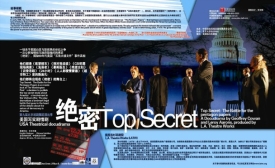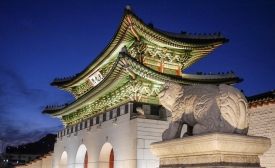public diplomacy

The USC Center on Public Diplomacy, the USC U.S.-China Institute, and the USC Annenberg Center on Communication Leadership and Policy were pleased to co-sponsor "
Several weeks before, in Algiers in December 2010, the U.S. State Department had launched the North African Partnership for Economic Opportunity (Napeo), bringing together over 300 entrepreneurs from Algeria, Mauritania, Morocco, Tunisia and Libya.
During the past several years, Chinese audiences have flocked to see American movies such as Kung-Fu Panda, much to the alarm of China’s political leadership, which has recently made clear that it is not inclined to surrender any terrain on the global cultural battleground.
There’s word there will be a new “acting” Under Secretary of State for Public Diplomacy (and Public Affairs) as early as next week. The current “acting” for R, as it is known at Foggy Bottom, is Assistant Secretary of State for Educational and Cultural Affairs Ann Stock.


A brief look at current public diplomacy practices and what the future might hold







